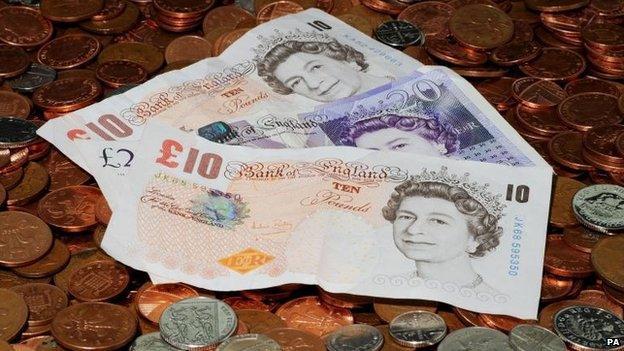Did bankers scam the bank rescue scheme?
- Published
- comments

Central banks like the Bank of England are something of a confidence trick.
Their ability to maintain the value and integrity of the currency, their success in promoting economic and financial stability, depends in some measure on our conviction that they are up to the job - even if for much of the time we don't really know how they do it (and even if for much of the time, they don't really know how they do it).
Which is why it matters that they are the most scrupulously honest of institutions. Without a reputation for putting the public interest first, they don't have very much.
And at any moment that we might fear that they or their employees are motivated other than by our financial and economic welfare, well at that point the game is up.
Shocking
That is one powerful reason why the disclosure, last night in the FT, that the Serious Fraud Office is probing whether so-called liquidity auctions held by the Bank of England in 2007-08 were rigged to generate fraudulent profits is as shocking as any of the revelations about alleged City wrongdoing over the past few years.
As I understand it, the SFO is looking at potential malpractice by the staff of our commercial banks, but has not ruled out that there may have been collusion by Bank of England staff.
Now the encouraging news is that the Bank is not taking disciplinary action against those who currently work for it. But it can't be confident that the SFO will not find evidence of wrongdoing by present and past employees.
Anyway, one important point is that as and when the SFO's enquiries are complete, it really matters that the Bank of England is as transparent as it can be about what happened, so that UK citizens - as owners of the Bank - can be certain that sunlight has cleansed it.
Suspicion
All that said, the kneejerk reaction of most to the disclosure is probably a deep sigh, that there appears to have been no opportunity lost by traders at our biggest commercial banks (you know who I mean) to scam any market that was remotely scammable.
And many will see this apparent instance as particularly nauseating, since the whole point of these liquidity auctions was to prop up the banks during the worst financial crisis arguably in history. In other words the suspicion is that they were scamming a rescue scheme, whose whole point was to keep their institutions alive and them in gainful employment.
How would any scam have operated? It is too early to say.
But I am told that the main auction being looked at by the SFO was the 2008 Special Liquidity Scheme, in which the Bank lent 32 banks and building societies £185bn, in return for collateral of £287bn, in the form of assets that the banks could not shift to anyone else (such as mortgage backed bonds).
It was a way of pumping into them cheap money that they desperately needed to keep lending and - more importantly - to meet the increasing demands of their creditors for repayment.
Without it, some of them would have been in dire straits.
For the Bank of England, it was a big, ambitious and innovative scheme, invented in the crucible of extreme financial crisis, and therefore massively open to abuse because of its novelty.
The disclosure that it may have been abused paints some of those who work for our banks as in need of serious psychiatric help.